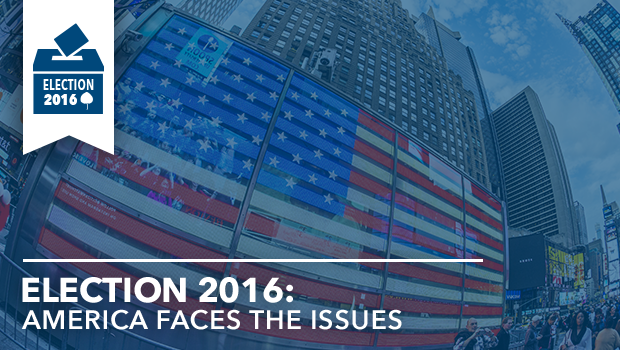Despite the most recent economic statistics showing signs of an uptick, Americans have lots of economic concerns these days – low and fluctuating wages, disappearing pensions, unaffordable housing, and rising health care and college costs. A whole generation of Americans who were told that hard work, higher education, and home ownership would safely deliver their families into the middle class have had the economic rug pulled out from under them. Perhaps the best statistic summing up this confluence of maladies is the staggering fact that nearly half the country wouldn’t be able to come up with $400 in the face of an emergency. We see the result of this financial insecurity in the volatile — and, at times, ugly — politics of this election year.
But it doesn’t have to be this way. If necessity is the mother of all invention, then the current economic landscape is ripe for innovative solutions — and you don’t need to look far to find them in both the private and public sectors.
On retirement security, for example, dozens of states and fintech firms are pursuing cutting-edge solutions to a long-standing problem: low- and moderate-income Americans without access to a 401(k) or other retirement plan at work. Four out of ten workers lack access to employer-sponsored retirement benefits, making them much less likely to be able to retire with dignity. Social Security, the indispensable bedrock of our nation’s retirement system, was never meant to be the sole source of retirement income, and yet a growing number of seniors have nothing else.
A number of states have recently stepped up to solve this problem, establishing programs that will automatically enroll uncovered workers in new state-created individual retirement accounts (IRAs) and giving millions of hardworking Americans the chance to save for retirement at work for the very first time. At the federal level there is growing bipartisan support to expand access to retirement savings through “open” multiple employer plans (MEPs), which would allow businesses to pool their buying power in order to offer their workers a low-cost and low-hassle plan. Financial technology innovators have also snapped into action, creating new low-cost retirement plans geared towards busy small business owners, and mobile phone apps that help gig-economy workers set up and manage a payroll-funded IRA from the palm of their hand.
On income volatility, fintech firms are helping Americans who experience wild swings in their pay — a growing and widespread phenomenon — better manage their finances. And cities like San Francisco are experimenting with helping workers get more predictability in their hours at work so that households can more easily schedule child care and second jobs, among the many other responsibilities working families are juggling each week.
Ultimately, though, retirement savings and income volatility (which are just two of the many problems that the Aspen Institute Financial Security Program works on) are too big to be solved by the private sector or state government alone. Improving Americans’ financial security — and renewing Americans’ faith in their civic institutions — will take more than just a tightening job market. Policies designed to ensure better and more plentiful jobs need to be coupled with a new generation of wealth-building opportunities. That means automatic channels for both short- and long-term savings; insurance against large, disruptive expenses like car repairs, rent increases, and hospital bills; and access to safe and affordable credit products that facilitate investments in education, home ownership, and other assets. It also means fair tax and trade policies that ensure macroeconomic growth is shared broadly.
Unfortunately, the discourse surrounding this year’s presidential election has been less than satisfying, rarely focusing on these opportunities for economic advancement. According to an Aspen Institute poll, 57 percent of Americans think retirement security — to take just one element of financial security — is not getting enough attention from the candidates.
Americans are right to be angry about the economy. The Great Recession decimated middle class wealth, especially among African-Americans, and almost all of the benefits of the recovery have accrued to individuals in the highest income bracket. The lopsided recovery goes a long way toward explaining the recent rise in economic nationalism as well. But channeling that anger into presidential election politics is a recipe for disaster. Voters should reward leaders who recognize the immense challenges facing the country and who offer policy ideas that will lead to a more deeply shared prosperity now and in the future.


